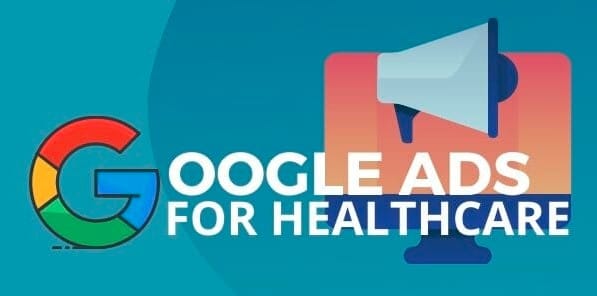Google ads are relevant in the healthcare industry due to their finely targeted audience. If you’re familiar with googling health issues and immediate health advice, you have a good idea. The internet age is all about prompt solutions and answers. This is where the scope for healthcare broadens.
How do Google Ads benefit you?
Along with the immediate feedback benefits of paid ads, google ads also makes location-by-location marketing feasible. Healthcare marketers can refine their audience by targeting the right demographic and keywords. For more insightful and innovative guidance, read the most efficient marketing tips.
Fine-Tune Your Keywords
- Incorporate relevant keywords
Mention the services and products within the keyword strategy. Customers and patients on the verge of becoming company consumers will likely run Google searches based on product names and services. This is a great way to boost the brand’s performance in healthcare.
- Research the target audience
While it is understood why websites use technically correct terms, more often, the patients and potential customers are not well-versed in this terminology. A technical barrier shouldn’t be why the brand is not reaching its target audience. When websites use common terminology like “cost,” “by,” “screening,” and “treatment,” it aligns with maximum search queries.
- Include negative keywords
Negative keywords can eliminate low-value clicks and replace them with high-quality ones. Sometimes, search results from two completely different industries or branches of the same industry clash. Negative keywords terminate this possibility. You must add these keywords to your Google keyword planner and search reports.
- Use keywords the right way
Broad, phrase, and exact are the three main types of keywords. Broad match covers a larger spectrum of search queries, whereas phrase and exact matches narrow it down. These three primary tiers of keywords work together to draw a holistic and quality audience.
- Deploy long-tail keywords
Longer phrases and multi-word keywords bring high-intent consumers to the brand. Ensure that the keywords sustain the element of specificity; they shouldn’t wander off the point. Doing so will help you obtain a filtered audience that perfectly aligns with your products and services.
Maintain Search-Intent Center and Front
- Study the ads coordinating with search queries
There are several ready-to-use tools at your disposal to optimize your search queries. Google’s Ads Preview and Diagnosis Tool are some of them. Your text should precisely deliver why the consumers should select your brand. Disclosing your distinct factors and innovative selling prepositions is a great start.
- Highlight consumer upsides
Apart from the unique selling techniques, mention the key benefits of your products and services. The more the benefits of your products and services synchronize with their requirements, the more consumer traffic your website will receive.
- Concise messages
While the primary urge will be to enlist everything that makes your brand unique, it’s best to stick to the point. Wordy messages often divert from the goal and may confuse the reader. Target a specific selling point when you formulate a message.
- Optimize the landing page
Ad campaigns are done like a pro when connected to a single landing page. If you’re one of the websites that incorporate ad conversions to lead them to your homepage, you must stop immediately. Your website will score greater conversions when the ad copy leads to the landing page instead.
- Involve the element of seasonality
Consider customizing the Google ads with the ongoing season to ensure constant relevance with the current times. This is a major factor, especially in the healthcare industry. Link seasonal health concerns to support global health issues and address services and products.
Master The Structure
- Utilize title cases
Title cases refer to capitalizing words or proper nouns in the headline. This is a productive strategy that will make your ad unique and keep you free from Google’s radar of policies on capitalization. Title cases increase the performance of your website by a few notches.
- Incorporate ad extensions
Direct access at your customer’s fingertips allows them to check out your products and details. List as many quality links, location extensions, callouts, and structured snippets as possible. This will take your click-through rates (CTR) through the roofs.
- Select optimum campaign types
The seven primary ad campaign types include search, display, discovery, video, shopping, app, and performance max. Some ad campaign types may be better for you than others based on your unique business motives and marketing goals. You can consult an experienced digital strategist to identify the best ad campaign type for you.
Refine Your Parameters
- Generate custom audience
Not everyone resonates with all products and services. For instance, someone with diabetes won’t be looking for a physiotherapist. You can target specific groups demographically to reach out to high-intent consumers. Other factors you can toy around to sharpen your audience are occupation, income, sex, devices, age, and more.
- Streamline the part of the day that is most efficient
Keep track of how your campaigns are doing daily. Once you have collected enough data to conclude the time of day the campaign is most viewed, you can increase the number of times it appears during that time.
- Define budget frames
Google Ads generates an ad plan based on your budget and daily clicks. This feature enables you to set a reasonable budget. It is a huge lifesaver when fixed budgets and experimental ad concepts are on the line.
- Try smart bidding strategies
Once you optimize your conversions, the number of signals you receive will likely increase. Use AI-infused bidding strategies to generate the appropriate campaign types, demographics, and audiences.
Analyze and Track
- Keep track of click-through rates
CTR refers to the percentage of ad views that lead to clicks, directly influencing the website’s quality score. Maximizing the click-through rates and setting obvious calls-to-action (CTAs) will help you maximize your ad campaigns and landing pages. It will help you connect with the audience that your brand is made for.
- Conversion Rate
Conversion rate refers to the percentage of clicks that inspire interactions. Companies must use positive and negative keywords, provide clear CTAs, define their objectives, and state precise messages to convert website visitors into consumers.
- Work on the quality score
Well-maintained CTR scores and conversions directly translate to low ad costs and high-quality campaigns. Healthcare pioneers face competition in high numbers. An extra pair of hands and skilled knowledge of the subject can be a game-changing move. Explore tools to help you grow and challenge yourself to grow.
Why choose us?
At Adjet Marketing, we provide efficient and productivity-inducing digital and marketing services. Our experts work round-the-clock to offer valuable and research-infused solutions to your marketing challenges. Whether you want to revamp your website or solve issues, we’ve covered it. Whenever you run into a roadblock, you can count on us to resolve it as soon as possible in the most efficient way. Choose us today to turn your marketing and digital challenges into milestones toward your goals.









